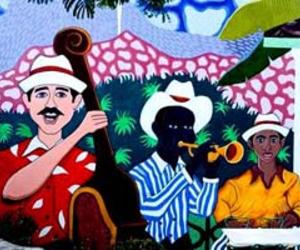Racism is still an issue in Cuba
- Submitted by: manso
- Society
- 07 / 30 / 2011

Posted at 05:12 AM on Friday, Jul. 29, 2011. Juan O. Tamayo. The Miami Herald. Each morning before the sun rises too high, Cubans gather at a shaded corner in central Havana, mingling as though at a cocktail party. The icebreaker is always the same: "What are you offering?"
WASHINGTON — The Cuban government will soon cast a media spotlight on the issue of racism on the island, although some programs to improve the lives of black Cubans had to be cut because of economic restraints, a Havana official said Thursday.
Heriberto Feraudy, who heads the quasi-official Cuban Commission against Racism, also said the popularity of Afro-Cuban religions is soaring and indicated that Raúl Castro’s economic reforms may not help blacks as much as whites.
Feraudy, who served 15 years as ambassador to five African nations, and Esteban Morales, a well-known Havana economist who writes often on race, addressed a conference on the issue sponsored by the Center for International Policy, a think tank.
Their unusually frank comments — for decades Cuba officially denied the existence of discrimination on the island — seemed to reflect the growing concern over race issues as the country drops some of its socialist policies and embraces more private enterprise.
Feraudy and Morales — both black — argued that the Fidel and Raúl Castro governments have done more for Cuban blacks since 1952 than any other government in the previous centuries.
“The problem of a division in Cuba (due to racial issues) is not possible,” said Morales, who was reportedly suspended from the Communist Party last year after he wrote a column complaining about the island’s burgeoning official corruption.
But both also agreed that racism persists on the island, and that the issue needs to be discussed and confronted even though “many people” in Cuba argue that the Castro revolution did away with racial discrimination.
Feraudy said some programs adopted under Fidel Castro to help blacks “had to be terminated” because of a shortage of resources — he gave no further details — but added that his commission is pushing for a broad discussion of the race issue.
Source: //www.fresnobee.com/2011/06/03/2481740/racism-is-still-an-issue-in-cuba.html#ixzz1TVc8T69n
Comments